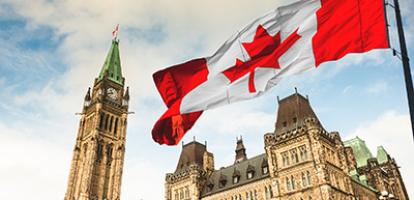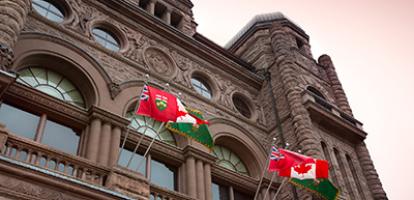The Mexican election was always one of the stumbling blocks on the NAFTA negotiating route and was one of the reasons why the Mexicans were initially pushing for the talks to be concluded early in 2018. That's now clearly impossible.
We got a blunt and sobering message last week from Steve Verheul, Canada's head NAFTA negotiator, telling us that negotiations with the Americans are bogged down and, apart from some agreement on peripheral things, there's absolutely no movement on the really tough issues.
The fundamental problem, Mr. Verheul said, is that the United States isn't approaching the negotiations with the objective of concluding a balanced deal. The Trump administration's position is "America First" and "America Only," reflecting the tone of the President's bellicose inaugural address. As a result, the United States has tabled one-sided, intransigent positions, non-starters for Canada from day one. U.S. negotiators have no room to compromise because of orders from the White House.
It's clear that there's a long, slow and painful road ahead in trying to achieve a North American free-trade deal, with agreement pretty remote at this stage. Mr. Verheul's message – which we assume was cleared through the Prime Minister's Office – is that Canadians shouldn't hold their breath in anticipating a successful outcome.
The question is: Where do we go from here? The next round of negotiations opens this Friday in Mexico City. In light of what Mr. Verheul told us, I wouldn't think it likely that there will be any breakthroughs; perhaps some advances on less controversial items here and there, but nothing that really propels things forward.
Assuming talks don't totally collapse, the next round after Mexico City is slated for Washington in April. But here's where things become uncertain.
The Mexican presidential election is on July 1. But the official election period begins on March 30. It's unlikely that the government of Enrique Pena Nieto would want to be engaged in NAFTA negotiations during the election campaign.
The leading presidential contender (according to several polls) is Andres Manuel Lopez Obrador, who heads a popular leftist coalition opposition. Mr. Lopez Obrador has been highly critical of Mr. Pena Nieto and his Institutional Revolutionary Party (PRI) with respect to their dealing with the Americans. It would be highly risky politically for Mr. Pena Nieto to be engaged in NAFTA talks, especially at the end of his mandate, with the PRI candidate, Jose Antonio Meade, looking over his shoulder at Mr. Lopez Obrador.
The Mexican election was always one of the stumbling blocks on the NAFTA negotiating route and was one of the reasons why the Mexicans were initially pushing for the talks to be concluded early in 2018. That's now clearly impossible.
The other problem is the U.S. midterm congressional elections set for Nov. 6. Looking at the calendar, Congress will recess at the end of July and only reconvene for a short period in September, when it will adjourn again to allow the midterm campaign to proceed. Assuming there's no cataclysmic NAFTA breakdown in March, it's a reasonable bet negotiations will be suspended sometime after the Mexico City round this month. There's always the possibility that U.S. President Donald Trump could take a unilateral decision to suspend U.S. participation during the electoral period, but I suspect that there will be a mutual agreement on this score.
The congressional picture could well be different by then if the Democrats regain control of the House (the Senate less likely). There's a strong protectionist bias in many parts of the Democratic party which, perversely, could give a boost to congressional support for Mr. Trump's "America First" trade agenda.
Overhanging all of this is the possibility Mr. Trump could peremptorily deliver the U.S. six-month notice of withdrawal from NAFTA, putting pressure on Canada and Mexico by leaving open definitive withdrawal sometime down the road. That scenario can't be entirely discounted. However, with the midterms coming up and the unpredictable effect that a sudden withdrawal notice would have on Republican electoral fortunes, it's more likely that we'll see suspension of the talks with agreement to resume sometime in 2019.
Whether there are better prospects for retooling NAFTA a year from now, given all the problems Mr. Verheul referred to, is not clear and it's that uncertainty that weighs on Canada. Even in the short-to-medium term, business decisions have to be made and with all of these unsettled elements in the air, this plays into Mr. Trump's hands as business investment will tend to flow to the United States.
Canadians have no choice but to live with this unsettled situation for the next year, possibly longer, while accepting that, even with all possible fortitude, it might not be possible to rescue the NAFTA when talks resume. Even if an acceptable deal emerges down the road, the reality is Canada will always be exposed to the vicissitudes of U.S. trade policies, whether under Mr. Trump or his successor.
On the positive side, the Canada-European Union Comprehensive Economic and Trade Agreement (CETA) and the new Comprehensive and Progressive Agreement for Trans-Pacific Partnership has helped to reduce that exposure. Prime Minister Justin Trudeau's India trip and the Trade Minister's foray into Latin America open additional – albeit long-term – possibilities for reducing Canadian dependency on an increasingly unreliable trade partner south of the border.
Lawrence Herman is a former Canadian diplomat who practices international trade law at Herman & Associates. He is also a senior fellow of the C.D. Howe Institute.
Published in The Globe and Mail.





